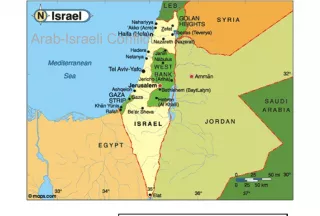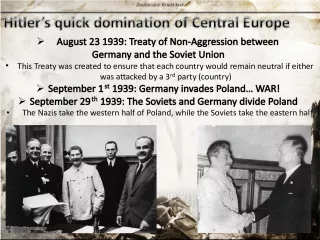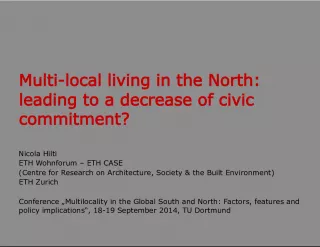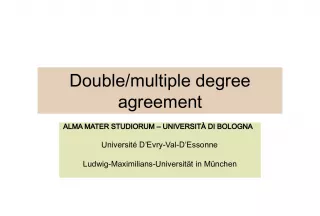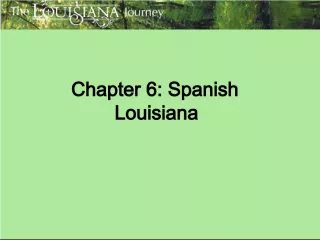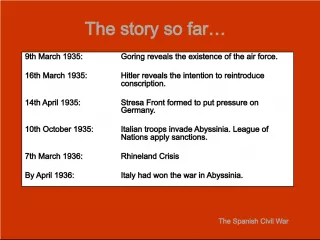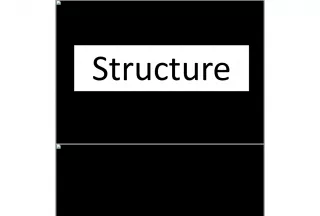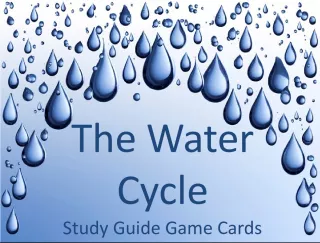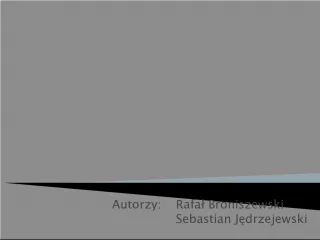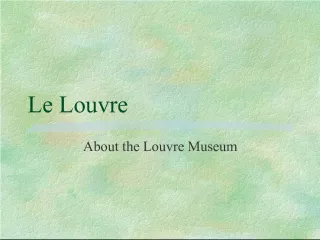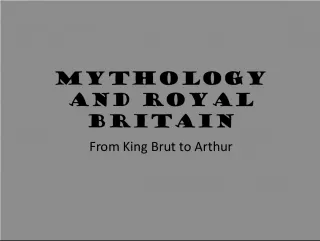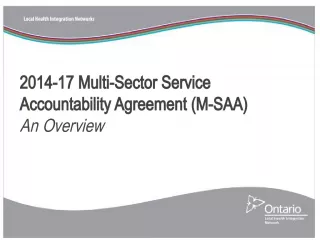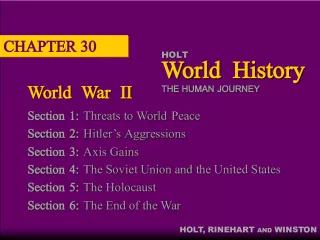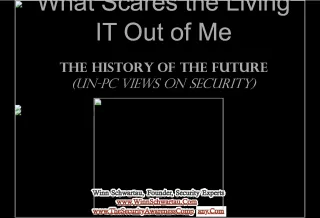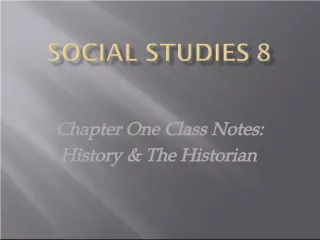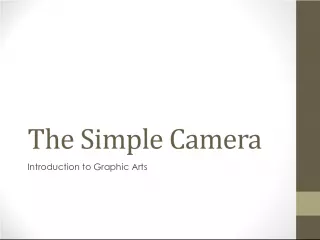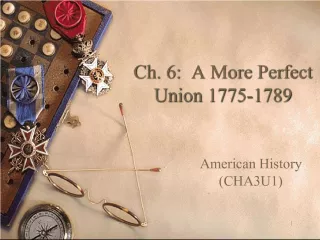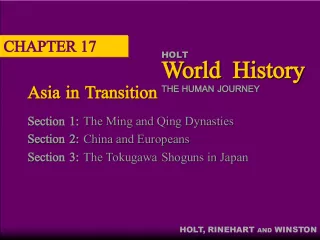WW2 Timeline History Cards: From the End of World War 1 to the Munich Agreement
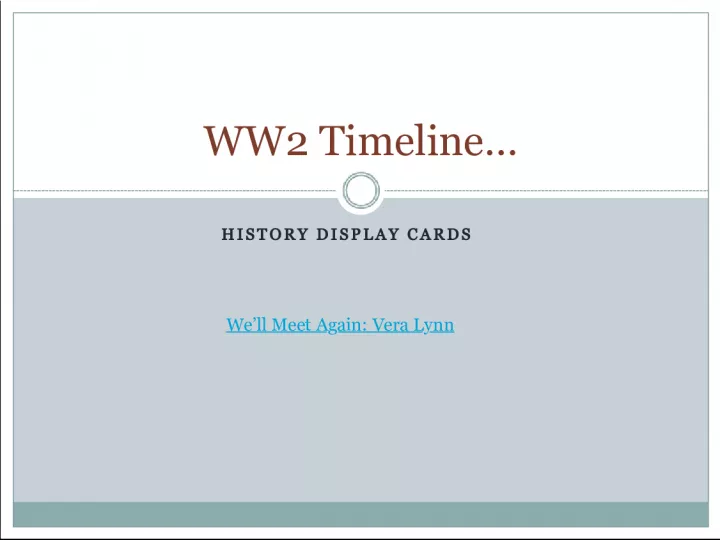

This set of history display cards offers a timeline of some of the key events leading up to the outbreak of World War 2. Starting
- Uploaded on | 2 Views
-
 burghard
burghard
About WW2 Timeline History Cards: From the End of World War 1 to the Munich Agreement
PowerPoint presentation about 'WW2 Timeline History Cards: From the End of World War 1 to the Munich Agreement'. This presentation describes the topic on This set of history display cards offers a timeline of some of the key events leading up to the outbreak of World War 2. Starting. The key topics included in this slideshow are . Download this presentation absolutely free.
Presentation Transcript
Slide1HISTORY DISPLAY CARDSWW2 Timeline… We’ll Meet Again: Vera Lynn
Slide2End of World War 1, 1918 Germany forced to give up land and was banned from having an army.
Slide3Adolf Hitler Comes To Power, 1933The German people vote the leader of the Nazi party as their new leader.
Slide4Gas Masks, 26th September 1938 Issued to the people of Britain.
Slide5Munich Agreement, 29th September 1938 Signed by Neville Chamberlain and Hitler. There is hope for peace.
Slide6Germany Invades Czechoslovakia, March 1939
Slide7World War Two Begins, 3rd September 1939 Britain and France declare war on Germany.
Slide8Germany invades Poland, 1st September 1939
Slide9Evacuation, 1st September 1939 Plans made to evacuate children ready for German air attacks.
Slide10National Registration Act, 7th September 1939 All households provide information for Identity and Ration Cards.
Slide11Anderson Shelters, 1939 By September half a million shelters had been installed in British gardens.
Slide12Dig for Victory, October 1939 Campaign launched.
Slide13Rationing Begins, 7th January 1940
Slide14Winston Churchill, 10th May 1940 Replaces Neville Chamberlain as British Prime Minister.
Slide15The Blitz, 7th September 1940 Nearly 200 Brits killed or injured in London on the first night alone.
Slide1621st September 1940 Underground stations used as public air raid shelters.
Slide17Coventry, November 1940 10 hours 500 enemy aircraft 1000 casualties 4330 homes destroyed
Slide18Italy, 10th June 1940 Join forces with Germany and enter the war.
Slide19Battle of Britain, 10th July 1940 The Luftwaffe (German air force) attemt to destroy the British RAF (Royal Air Force).
Slide20Morrison Shelters, March 1941 Introduced for people without gardens.
Slide21House of Commons, 10th May 1941 German air raid destroys the House of Commons and the Holborn theatre.
Slide22National Service Act, 18th December 1941 Women called up for war work, jobs such as mechanics, engineers and tank drivers.
Slide23Historic Cities, 28th September 1942 The Luftwaffe begins bombing Exeter, Bath amongst others.
Slide24‘V’ for Victory, 28th September 1941 BBC launches campaign.
Slide25Clothes Rationed, 1st June 1941 British government introduces clothing and furniture.
Slide26Italy Surrenders, 28th September 1943
Slide27Italians swap sides, 10th October 1943 Italy declares war on Germany.
Slide28D-Day, 6th June 1944 Allied troops land in Northern France for the battle of Normandy.
Slide29US troops enter Germany, 11th September 1944
Slide30Battle of the Bulge, 16th December 1944 Germany launches a final offensive on the west, officially called the Ardennes Offensive.
Slide31Hitler commits suicide, 30th April 19454
Slide32Germany surrenders, 7th May 1945 German General Alfred Jodi signs an unconditional surrender of all German forces.
Slide33VE Day, 8th May 1945 (Victory in Europe)
Slide34End of World War 2, 2nd September 1945 Japan surrenders sparking the official end of the war across the world.
Slide35Rationing ends, 4th July 1954 People tear up ration books to celebrate.
